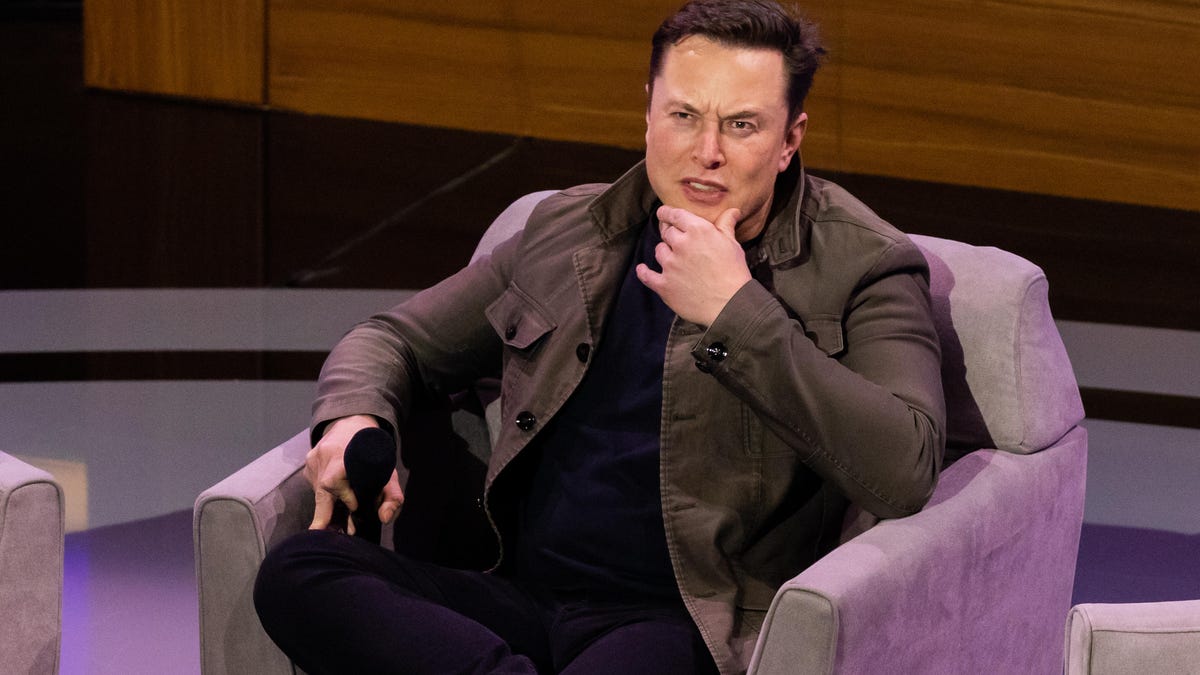Twitter vs. Elon Musk: Battle Over $44B Deal Could Get Uglier
Walking away from a $44 billion deal to buy Twitter isn't going to be easy for Musk, legal experts say.

Billionaire Elon Musk wants to terminate his $44 billion deal with Twitter.
Billionaire Elon Musk's on-again, off-again relationship with Twitter keeps getting more complicated.
Last week, Musk pulled out of a $44 billion deal to buy the social network, a decision that will likely set off a messy and drawn-out court battle.
Twitter says it plans to sue the world's richest man in the Delaware Court of Chancery, and on Sunday said in a letter that Musk's termination of the deal was "invalid and wrongful." Some legal experts say the social network may have a strong case against Musk.
Twitter had staked its future on Musk's takeover of the company when it struck a deal with the billionaire. The publicly traded company faces pressure from investors to grow its ads business. The social network saw Musk's effort to buy the business and take it private as a way to escape short-term expectations and focus on a long-term effort to decentralize itself so users have more control over their experience on the platform.
Musk marketed himself as a good fit for Twitter. The billionaire pledged to safeguard free speech, open-source Twitter's algorithm and "defeat" automated spam accounts that fill many feeds. Now Musk, who also leads Tesla and SpaceX, appears to be having buyer's remorse.
Some of that regret may be prompted by a dramatic drop in Twitter's stock price since the deal was announced on April 25. In May, shares gradually dropped by more than 25% at one point amid rising concerns that the economy might be on the verge of a recession. That month, Musk also raised the possibility of a lower price, but Twitter has shown no signs it will budge on the figure.
Charles Elson, a retired University of Delaware professor and founding director of the Weinberg Center for Corporate Governance, said he views Musk's latest move as likely a "bargaining chip" to renegotiate the deal at a lower price.
"It's very hard in Delaware to get out of a deal unless you can show some kind of fraud," Elson said. "It's a very high hurdle."
Attempting to back out of a deal and then renegotiating the price has been a successful tactic before, Elson noted. In 2020, French luxury goods giant LVMH Moët Hennessy Louis Vuitton pulled out of a deal to buy US jeweler Tiffany because it needed more time to figure out the impact of potential US tariffs on French goods. LVMH ended up closing a $15.8 billion deal after receiving a $400 million discount from the original offer.
The 73-page merger agreement requires Musk to pay $1 billion if the deal gets terminated under certain circumstances, so that's another potential outcome. It's also possible that Musk wins in court and the billionaire walks away without paying the termination fee.
In a letter explaining the deal termination, Musk's lawyer Mike Ringler says the billionaire is walking away because Twitter breached several parts of the agreement and "appears to have made false and misleading representations." The letter outlines information Twitter has failed to provide the billionaire, including its process for calculating the number of spam and fake accounts on the platform. Twitter estimated in the first quarter that fewer than 5% of Twitter's 229 million daily users were fake or spam-focused, but Musk says the number is much higher. In the letter, Ringler says Musk wants more information about this metric because it's "fundamental to Twitter's financial and business performance."
"Despite public speculation on this point, Mr. Musk did not waive his right to review Twitter's data and information simply because he chose not to seek this data and information before entering into the Merger Agreement," the letter stated.
Some legal experts say Musk's arguments in the letter appear weak.
Twitter, for example, notes in its earnings release its estimates of false or spam accounts might not "accurately represent" the number of those accounts and the number could be higher, so proving that the company provided incorrect information will be an uphill battle. In Sunday's letter, Twitter also denied breaching the agreement.
Ann Lipton, associate dean for faculty research at Tulane Law School, said that purchasing a company "is not like buying a toaster" where you buy the item "and walk out with it that day." Instead, the process takes months, includes regulatory filings and shareholders have to ultimately approve the agreement. When lawyers draft merger agreements, companies also know that economic conditions could change in the future, Lipton said.
"Because people drafting merger agreements understand that, they lock them up tightly to make it very hard for somebody to suddenly decide they don't like the deal anymore and walk away," she said. "And that's exactly what Twitter did here."
Twitter co-founder Ev Williams tweeted on Friday that if he was still on the board he would be asking if "we can just let this whole ugly episode blow over." But legal experts don't think that's likely.
I'm sure there are legal/fiduciary reasons you have to say that, Bret. But if I was still on the board, I'd be asking if we can just let this whole ugly episode blow over. Hopefully that's the plan and this is ceremony.
— Ev (@ev) July 9, 2022
"Twitter has a fiduciary duty to its own shareholders," Lipton said. "It can't just say this is too much trouble."

